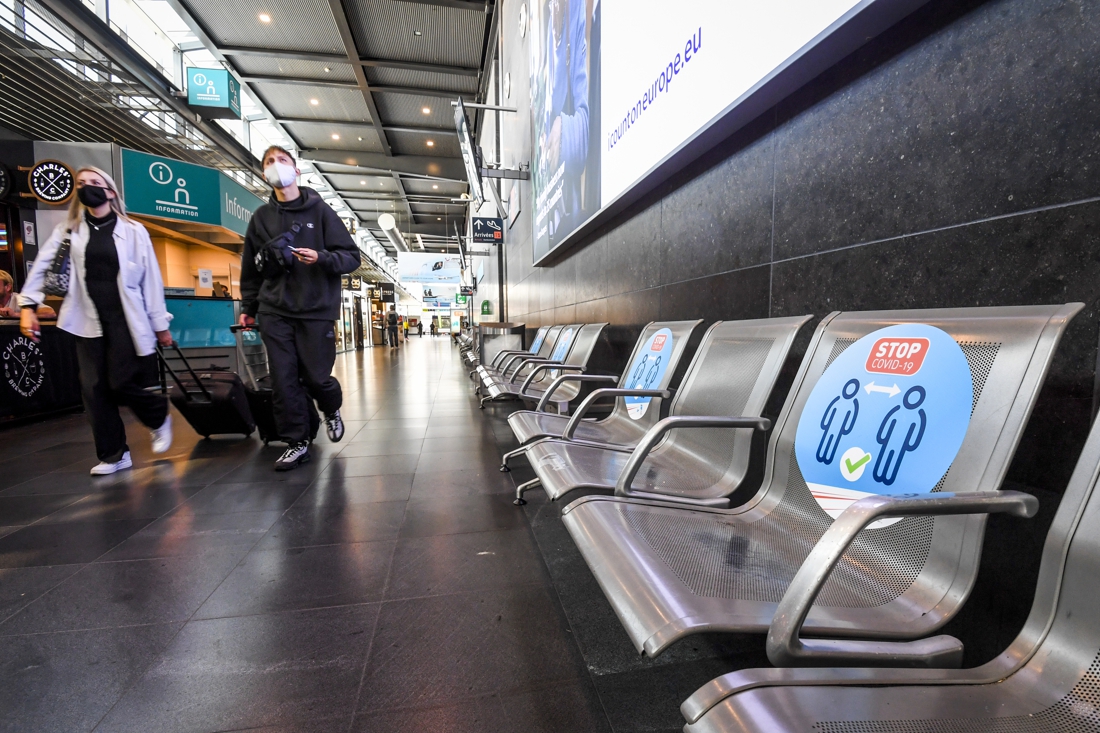15 september 2020
20:16
–
The Netherlands will tinker with the tax benefits of multinationals, wealthy and self-employed. This was announced by Minister of Finance Wopke Hoekstra on Pr tuesday.
–
The Glass Carriage with King Willem-Alexander and Princess Máxima arrives in The Hague every year on the third Tuesday of September. But this year the royal couple ‘just’ arrived in an official car.
–
Budget Day was sober in several respects. Not only because of the corona measures, but also because of the economic malaise and the gloomy outlook. The king did not deliver his speech from the throne in the Ridderzaal of the Binnenhof in The Hague, where the Dutch parliament is also located, but half a kilometer further, in the Grote Kerk. There, the 1.5 meter distance could be guaranteed for 250 guests.
–
The monarch prepared the Dutch people for difficult economic and social times. “We have to brace ourselves for a severe economic downturn, also in the long term,” he told MEPs.
–
After Willem-Alexander had ushered in the new parliamentary year, the guests left for the Binnenhof. There, Minister of Finance Wopke Hoekstra traditionally presented the briefcase to parliament containing the Budget Memorandum and National Budget.
–
Public finances
Hoekstra picked up where King Willem-Alexander had left off. The corona crisis could also disrupt Dutch society next year, he summarized. Still, he says there is reason for optimism.
–
‘The public finances are in good order. We climb out of the valley and provide perspective. ‘ Despite the health measures, the minister wants to keep the economic damage to citizens and companies within limits.
–
A support package for companies, entrepreneurs and employees, amounting to 46 billion euros this year and next, should provide a way out. In the meantime, tax revenues have decreased by EUR 16.6 billion. The national debt will rise in 2021 to 61 percent of the gross domestic product (GDP), or 502 billion euros. The Hague expects the budget deficit to amount to 45 billion euros next year. That is 11 billion less than this year.
–
Dividend tax
Multinationals, including Dutch companies that operate across borders such as Shell and Unilever, will pay part of the bill. In 2021, they will have to pay an additional levy of a total of 728 million euros. From 2024, large companies will also be subject to a CO₂ tax.
–
The Netherlands always rolled out the red carpet for multinationals. Three years ago, the cabinet wanted to abolish dividend tax, so that those companies would not establish themselves outside the Netherlands. The decision did not appear to affect Unilever, which moved its headquarters from Rotterdam to London in June.
–
Dutch people with large equity capital also have to fill the state coffers. For the two million richest Dutch citizens, the rate of the capital gains tax will increase from 30 percent to 31 percent. One million small savers, on the other hand, receive an exemption. The tax authorities will also reduce a deductible item for self-employed persons.
–
Kmo’s
The Hague is allocating 1 billion euros for the business community. This includes a national ‘scale-up fund’ for innovative companies worth 150 million euros. According to the interest group Dutch Startup Association, the focus is mainly on job retention, while the future growth of companies should receive more attention.
–
Dutch SMEs also receive 150 million. There will also be a fund of 300 million euros for healthy medium-sized companies.
–
–


